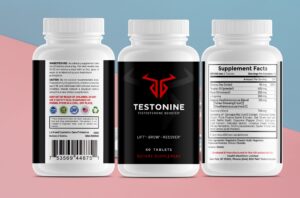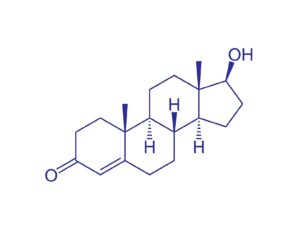In recent years, there has been a growing interest in understanding how vegetable oils affect testosterone levels in men. Testosterone, the primary male sex hormone, plays a crucial role in various aspects of men’s health, including muscle mass, libido, and overall well-being. As the consumption of vegetable oils has increased dramatically in modern diets, it’s essential to explore how these oils may impact testosterone production and balance.
What Are Vegetable Oils?
Vegetable oils are plant-based oils extracted from seeds, nuts, or fruits. Some common examples include:
- Soybean oil
- Canola oil
- Sunflower oil
- Corn oil
- Safflower oil
- Peanut oil
- Cottonseed oil
These oils are widely used in cooking, food processing, and as ingredients in various packaged foods and snacks.
The Potential Impact of Vegetable Oils on Testosterone
Several studies have investigated how vegetable oils affect testosterone levels, and the results suggest that certain types of vegetable oils may have a negative impact on testosterone production and balance. Here are some key findings:
High intake of polyunsaturated fatty acids (PUFAs):
Many vegetable oils are rich in PUFAs, particularly omega-6 fatty acids. While some PUFAs are essential for health, excessive consumption of omega-6 fatty acids has been linked to decreased testosterone levels. A study by Hämäläinen et al. (1983) found that a high intake of PUFAs was associated with lower serum testosterone concentrations in men.
Imbalanced omega-6-to-omega-3 ratio:
Modern diets often have a significantly higher ratio of omega-6 to omega-3 fatty acids, largely due to the increased use of vegetable oils. This imbalance may contribute to inflammation and hormonal disruptions, including reduced testosterone levels. A study by Safarinejad et al. (2010) showed that a higher intake of omega-6 fatty acids was associated with lower testosterone levels in men.
Presence of industrial trans fats:
Some vegetable oils, particularly partially hydrogenated oils, contain industrial trans fats. These artificial fats have been linked to various health issues, including hormonal imbalances. A study by Chavarro et al. (2006) found that men with a higher intake of trans fats had lower sperm counts and lower testosterone levels compared to those with a lower trans fat intake.
Increased oxidative stress:
When exposed to high heat, such as during cooking or processing, vegetable oils can oxidize and form harmful compounds. These compounds can contribute to oxidative stress in the body, which may negatively impact testosterone production. A study by Otaegui-Arrazola et al. (2010) suggested that oxidized lipids may interfere with testosterone synthesis.
Alternatives to Vegetable Oils
If you’re concerned about how vegetable oils affect testosterone, consider using alternative cooking oils and fats that are less likely to negatively impact hormone levels. Some options include:
- Extra virgin olive oil
- Coconut oil
- Avocado oil
- Butter or ghee (in moderation)
- Animal fats from grass-fed sources
These alternatives are generally lower in PUFAs and more stable when exposed to heat, reducing the risk of oxidation and potential hormonal disruptions.
Other Factors That Affect Testosterone Levels
While understanding how vegetable oils affect testosterone is important, it’s crucial to recognize that many other factors can also influence testosterone levels in men. These include:
Age: Testosterone levels naturally decline with age, typically starting around age 30.
Body composition: Excess body fat, particularly visceral fat, can contribute to lower testosterone levels.
Diet: A diet high in processed foods, sugar, and unhealthy fats can negatively impact testosterone production.
Exercise: Regular physical activity, especially resistance training, can help maintain or increase testosterone levels.
Sleep: Lack of quality sleep can disrupt hormone production, including testosterone.
Stress: Chronic stress can lead to elevated cortisol levels, which can suppress testosterone production.
By addressing these factors and making lifestyle changes to support overall health, men can help optimize their testosterone levels and improve their well-being.
Frequently Asked Questions (FAQ)
Can using vegetable oils for cooking really lower testosterone levels?
While the occasional use of vegetable oils in cooking is unlikely to have a significant impact on testosterone levels, regularly consuming foods cooked in or containing large amounts of vegetable oils high in PUFAs and omega-6 fatty acids may contribute to hormonal imbalances over time.
Are all vegetable oils bad for testosterone?
Not all vegetable oils have the same impact on testosterone levels. Oils high in PUFAs and omega-6 fatty acids, such as soybean, corn, and sunflower oils, are more likely to negatively affect testosterone compared to oils like olive oil or coconut oil.
Can switching to alternative cooking oils improve testosterone levels?
Replacing vegetable oils high in PUFAs with healthier alternatives like extra virgin olive oil, coconut oil, or animal fats from grass-fed sources may help support optimal testosterone levels when combined with other lifestyle factors, such as a balanced diet, regular exercise, and stress management.
How long does it take to see improvements in testosterone levels after making dietary changes?
The timeline for seeing improvements in testosterone levels after making dietary changes varies from person to person and depends on factors like age, overall health, and the extent of the changes made. Some men may notice positive changes within a few weeks, while others may require several months of consistent lifestyle modifications.
Should I avoid all foods containing vegetable oils to maintain healthy testosterone levels?
While it’s beneficial to minimize your intake of foods high in vegetable oils, completely avoiding them may not be necessary or practical. Focus on consuming a balanced diet rich in whole, minimally processed foods and using healthier cooking oils when preparing meals at home. When consuming packaged foods, read labels carefully and opt for products with lower amounts of vegetable oils.
Key Takeaways
Vegetable oils, particularly those high in PUFAs and omega-6 fatty acids, may negatively affect testosterone levels in men when consumed in excess.
Imbalanced omega-6 to omega-3 ratios, the presence of industrial trans fats, and increased oxidative stress from heated vegetable oils can contribute to hormonal disruptions and lower testosterone levels.
Replacing vegetable oils with healthier alternatives like extra virgin olive oil, coconut oil, or animal fats from grass-fed sources may help support optimal testosterone levels.
In addition to understanding how vegetable oils affect testosterone, men should also focus on other lifestyle factors that influence hormone levels, such as age, body composition, diet, exercise, sleep, and stress management.
Making consistent, positive lifestyle changes can help optimize testosterone levels and improve overall health and well-being.
Conclusion
By being mindful of how vegetable oils affect testosterone and making informed choices about the fats and oils consumed, men can take proactive steps to support their hormonal health. However, it’s essential to remember that diet is just one piece of the puzzle when it comes to maintaining healthy testosterone levels. A holistic approach that addresses various lifestyle factors is crucial for optimizing hormone balance and overall well-being. If you suspect you may have low testosterone levels or are experiencing symptoms related to hormonal imbalances, consult with a healthcare professional for proper evaluation and guidance on appropriate treatment options.
References:
- Chavarro, J. E., Rich-Edwards, J. W., Rosner, B. A., & Willett, W. C. (2006). Dietary fatty acid intake and the risk of ovulatory infertility. The American Journal of Clinical Nutrition, 85(1), 231-237.
- Hämäläinen, E., Adlercreutz, H., Puska, P., & Pietinen, P. (1983). Diet and serum sex hormones in healthy men. Journal of Steroid Biochemistry, 20(1), 459–464.
- Otaegui-Arrazola, A., Menéndez-Carreño, M., Ansorena, D., & Astiasarán, I. (2010). Oxysterols: A world to explore. Food and Chemical Toxicology, 48(12), 3289–3303.
- Safarinejad, M. R., Hosseini, S. Y., Dadkhah, F., & Asgari, M. A. (2010). Relationship of omega-3 and omega-6 fatty acids with semen characteristics, and the anti-oxidant status of seminal plasma: A comparison between fertile and infertile men. Clinical Nutrition, 29(1), 100–105.
- Saldeen, P., & Saldeen, T. (2004). Women and omega-3 fatty acids. Obstetrical and Gynecological Survey, 59(10), 722–730.





